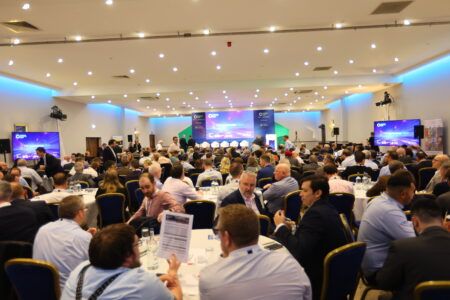An online platform called the ITS Observatory, put together with leadership from ERTICO ITS Europe, has been unveiled at the European Congress in Glasgow, Scotland.
A pre-launch version was demonstrated at the event, with a full launch scheduled in the fall of 2016. It is envisioned that the Observatory will act as an information hub for the ITS industry, where all users will be able to contribute information and expertise about the projects they are working on, opinion and events for the benefit of the wider community. Eventually this could build to become an extensive online database of ITS projects a sort of specialized, active Wikipedia upon which the transportation industry can rely.
Speaking exclusively to Traffic Technology Today, Paul Kompfner (pictured), senior adviser of urban mobility and MaaS, ERITCO ITS Europe, says, “It’s a dynamic marketplace of ITS knowledge a real-time database. Currently, if you want to know about certain ITS projects, you cannot go to any one place or database to find out that information. Over time, we want the ITS Observatory to become an inventory of deployment.”
A further, social element of the Observatory will enable users to directly contact each other, once again to further information exchange and help new projects to be completed more efficiently, building on experiences from the past.
“The ITS Observatory also has a social function that enables users to make one-to-one connections with experts or suppliers to get answers and solutions to specific questions,” says Kompfner.
The ITS Observatory project has now started to develop a strategy and explore, establish and implement a business plan that will provide the basis to safeguard the ITS Observatory as an available resource. To this end the project analyzed the value proposition for the stakeholders including both suppliers of data and users of the ITS Observatory. Questions of cost of operation over the long term and the relationship to affordability as well as benefits for users also need to be taken into consideration. Kompfner adds, “We’re now looking for ITS owners and ITS suppliers to use and share ITS information, and investors to take the Observatory further once the first phase of public funding has finished.”
In building a structured business case for the ITS Observatory there is focus on the two main groups of customer: the content providers and the knowledge seekers. This approach will be continued intensively during the next period of the project in order to estimate potential revenues and costs. A questionnaire has now been developed which will improve the value proposition and business plan by interviewing individuals from different segments.
The questionnaire will provide input into the value proposition and the sustainability strategy. The latter will provide the foundation for the long-term stability of the ITS Observatory, setting the basis of the financial model.
The pre-launch version can be viewed here.



